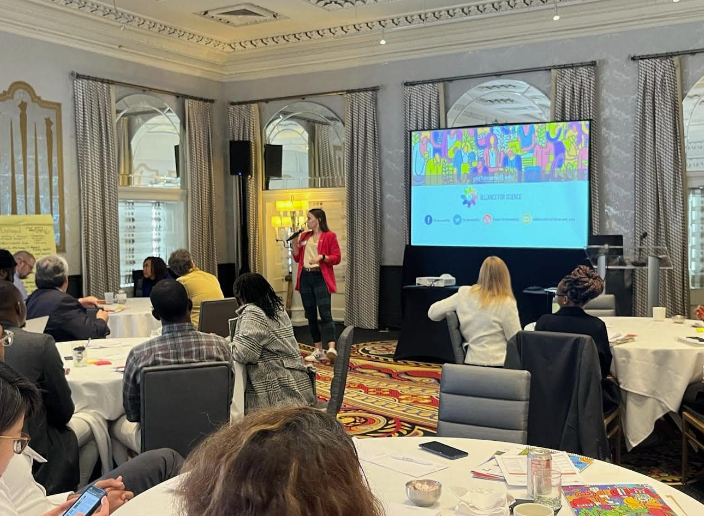Imagine my frustration while trying to bottle-feed breast milk to my 4-week-old baby. The little guy was not happy taking his nature-made meal from a bottle, even if they had different-styled nipples. He would only take the breast milk directly from his mom.
As a result, I wasted no time raising this concern with his pediatrician during our last visit. She responded with a surprising answer, “Oh, he can smell the milk from his mother's breast if she is in proximityâ€.
How could this invisible, non-verbal communication proceed even without the willful participation of either the sender(mom) or receiver(baby)? And how could smell (which we may argue is the least significant among the human senses) have such an impact on feeding? The answer, I found, was the term “chemical communicationâ€.
The chemical compounds in the environment are constantly changing, requiring organisms to continually adapt for survival. Hence, living organisms, such as bacteria, plants and animals, deduce information from their environment by sensing the chemical compounds around them and transmit information between themselves by releasing chemical compounds. For instance, some bacteria can share information among themselves by secreting a group of chemical compounds that signify a critical density of cells, or quorum. This process, called quorum sensing, enables these bacteria to perform beneficial activities as a group such as generating light or producing antibiotics to fend off predators. Similarly, plants are capable of chemical communication. For example, plants such as sagebrush and wild tobacco release volatile organic chemicals (VOCs) when under pest or pathogen attack, which then alarm other neighboring plants of danger.
Compared to the few types of sensing receptors of bacteria and plants, the human nose has an intricate network of about 400 types of scent receptor cells capable of detecting an average of 1 trillion different chemical compounds. Each of these receptors are connected to nerve cells which can relay the information to different parts of the brain right above it.
For this reason, smell has a tremendous influence on human psychology: triggering memories, shaping our emotions and behavior, and fostering physiological responses. Though this finding suggests that humans are much better smellers than what an old myth claims, they still fall short when compared to dogs. Many people might not enjoy the full potential of our smelling capabilities as polluted environments have been found to reduce the sense of smell. This finding seems logical since chemical communication signals might be jammed when there are a lot more chemical compounds than receptors.
How does this information relate back to nursing babies? Chemical communication is a two-way street. New moms experience a calming and rewarding sensation when sniffing a newborn's scent. In turn, the odor of new moms is soothing to crying babies and increases mouthing responses in awake infants.
The ability for a newborn to suckle at their mother's breast is a critical trait that is already hardwired by human survival. All mammals feed their babies milk, but different mechanisms are employed to facilitate suckling. Rabbit and human mothers secrete pheromones in the breast milk that is detected by their babies while rats, lacking this ability, require their babies learn the signature odor of their mother.
While I cannot replicate a mother's odor, I was eventually successful in my bottle-feeding. With a great application (Baby Tracker), I had the data on the number of bottle feeding attempts and success. I did find about an 85% success rate in bottle-feeding my baby when his mom was in a separate room. While chemical communication is an important factor for my baby's feeding, a father's patience overcomes any baby's fuss.
About the Author
I am a Ph.D. student in the Department of Microbiology at the University of Georgia working with Dr. William Whitman. I am interested in expanding the genetic toolbox of methane-producing archaea for potential industrial application. I am originally from Lagos, Nigeria where I grew up and obtained my B.Sc. and M.Sc. in Plant Biology. I love to spend time chatting or driving around with my wife and 2-month old son. In my free time, I play soccer, read history and interact with friends and neighbors.
-
This author does not have any more posts.






